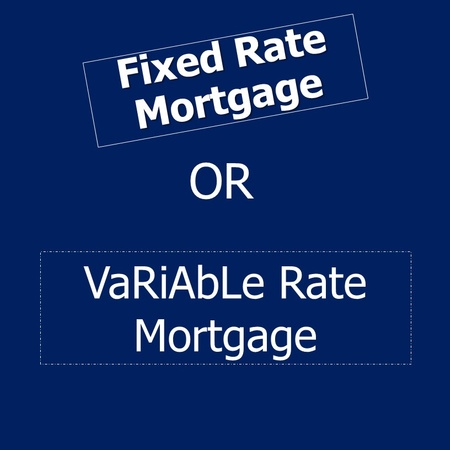We have been told to take a fixed rate mortgage term until now! What has changed???

Before reading any further, if you are the type of person who can’t sleep at night knowing your interest rate may go up, even by just a little, a variable rate mortgage may not be the best option for you.
With a fixed rate mortgage term, the mortgage rate and payment(s) you make each month will stay the same for the term of your mortgage. With a variable rate mortgage, the mortgage rate will change with the prime lending rate as set by your lender and depending on which lender you are with, your payment amount may or may not change too.
Before last weeks Bank of Canada’s prime rate announcement where the prime rate stayed the same, the expectation by many economists was 3 or more prime rate hikes over the next 18 months. However, after reading the latest Globe and Mail article, the question I have is if we will see more than one increase
The Bank of Canada still maintains that its key bank rate is headed toward its estimated “neutral range,” which would equate to an increase of 75 basis points or three-quarters of a percentage point higher than we are now.
According to the article, “the bond market is losing faith in the bank’s words as it is focused on the facts: economic growth stalled this quarter, Canadians’ savings rate is near all-time lows, the economically critical oil sector is near crisis mode, trade war threats persist, the all-important housing sector is slowing, consumer spending is dropping, business investment is falling, the stock market is diving, and now even the U.S. Federal Reserve is chirping dovish” (1)
And that is why Canada’s five-year bond yield has recently decreased which does not mean the fixed rates are going to continue to increase at this point.
So why take a fixed rate mortgage term that comes with a higher rate than a variable term?
The usual suggestion I make to all of my variable rate clients to mitigate any risks is to fix your mortgage payment higher based on the current 5-year rate. Not only will you have a buffer if rates rise, but you will also take advantage of the current lower variable interest rate by having more of each regular payment going to paying down the principal.
While it may seem like a good idea to take advantage of a variable rate mortgage product while rates are still relatively low and switch to a fixed rate mortgage when rates begin to significantly increase, I don’t agree with this strategy as who is really going to have a whole lot of luck in timing the market? In my opinion, you take a variable rate mortgage product because you believe over time, the variable rate is going to average lower than your longer-term fixed.
Bottom line, is if you take a variable rate mortgage, stay with it. If you are thinking you will lock in to a fixed at some point, perhaps now might be the time to forgo the lower variable rate option and take a fixed rate term.
Take a look at the graph (2) below provided by one of my favorite lenders, CMLS, which details what has happened in the past with variable rates versus fixed rates. The $64,000 question I have is – does history repeat itself?
If you want some calculations done, then contact the MortgageGirlca and run the numbers. Former bank Manager turned MortgageBroker with over 36 years of experience. benefitfromexperience Contact her via phone 780-433-8412 or email info@mortgagegirl.ca. Follow her on Facebook (MortgageGirl.ca), Twitter (MortgageGirlca) or on Instagram (MortgageGirl.ca) or read more of her blogs at – mortgagegirls.wordpress.com